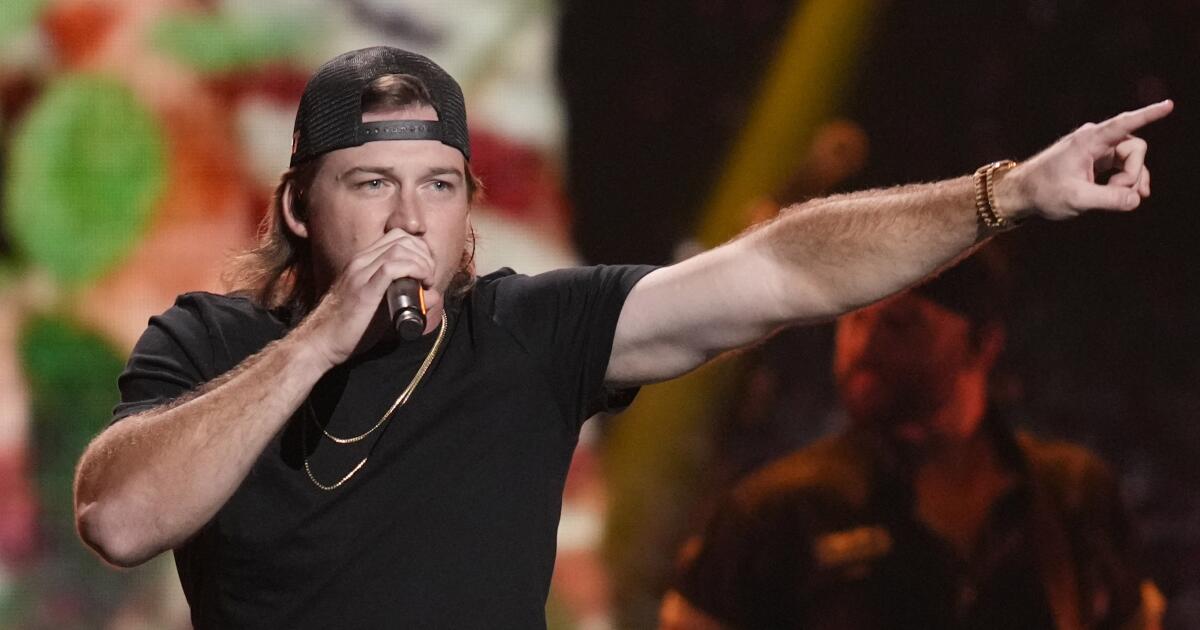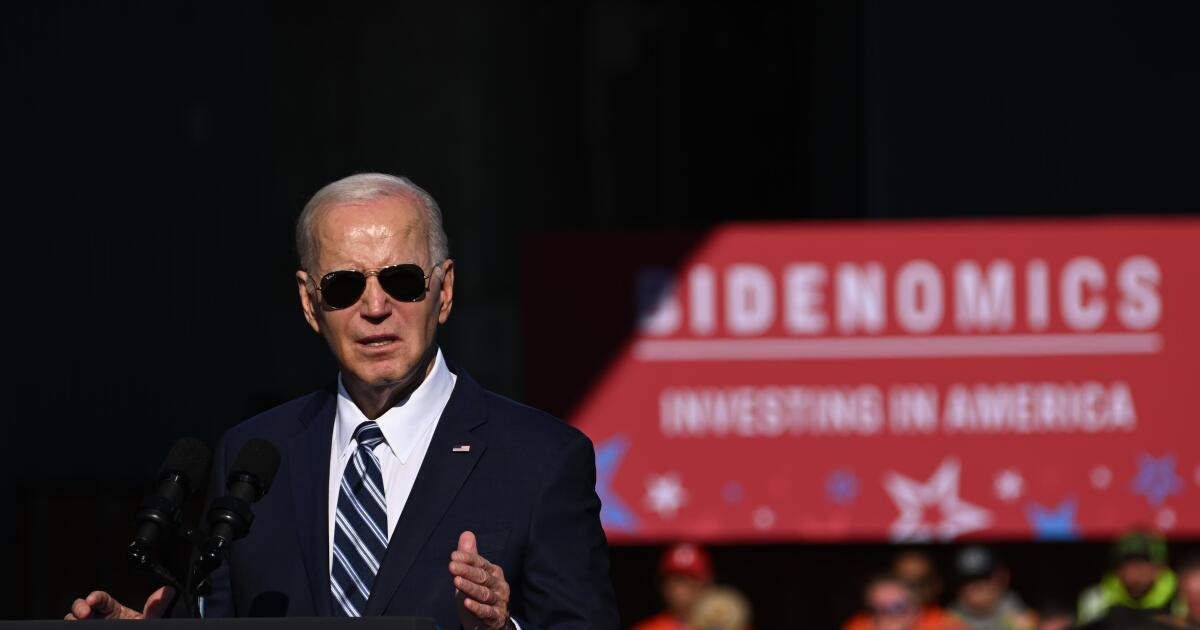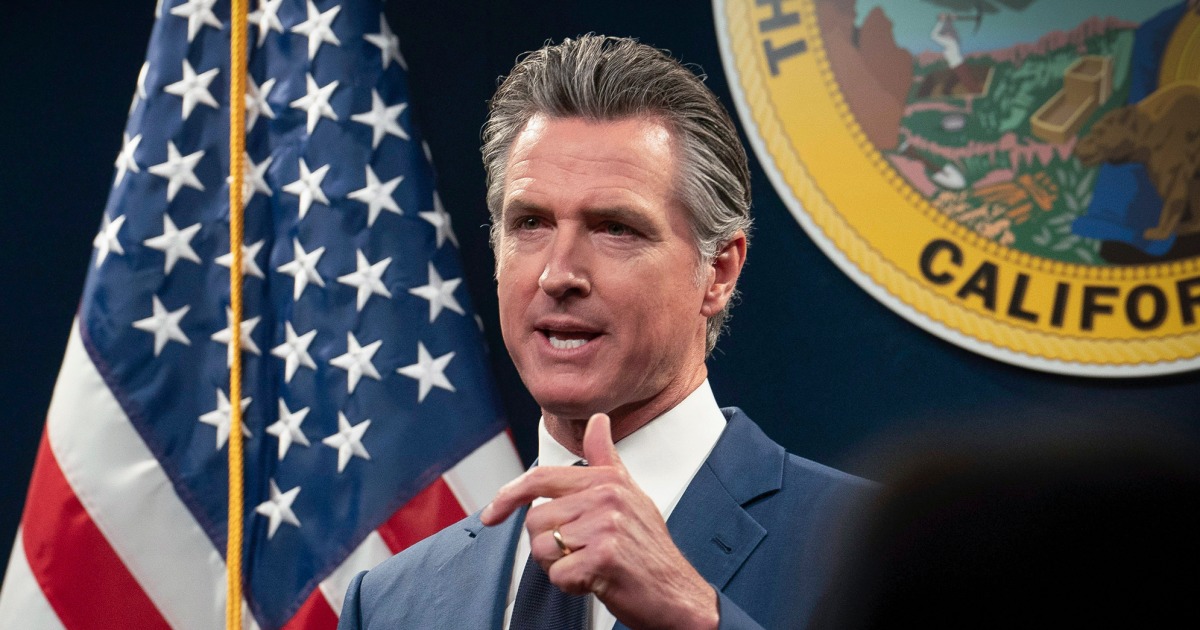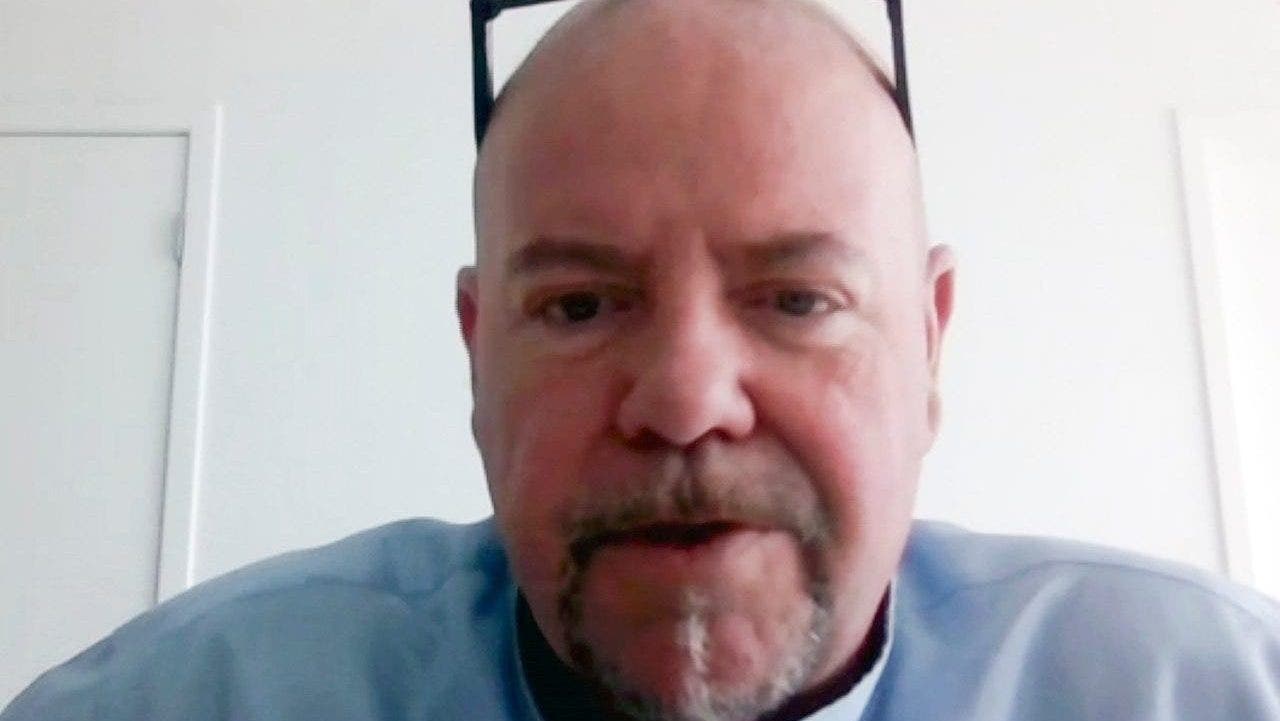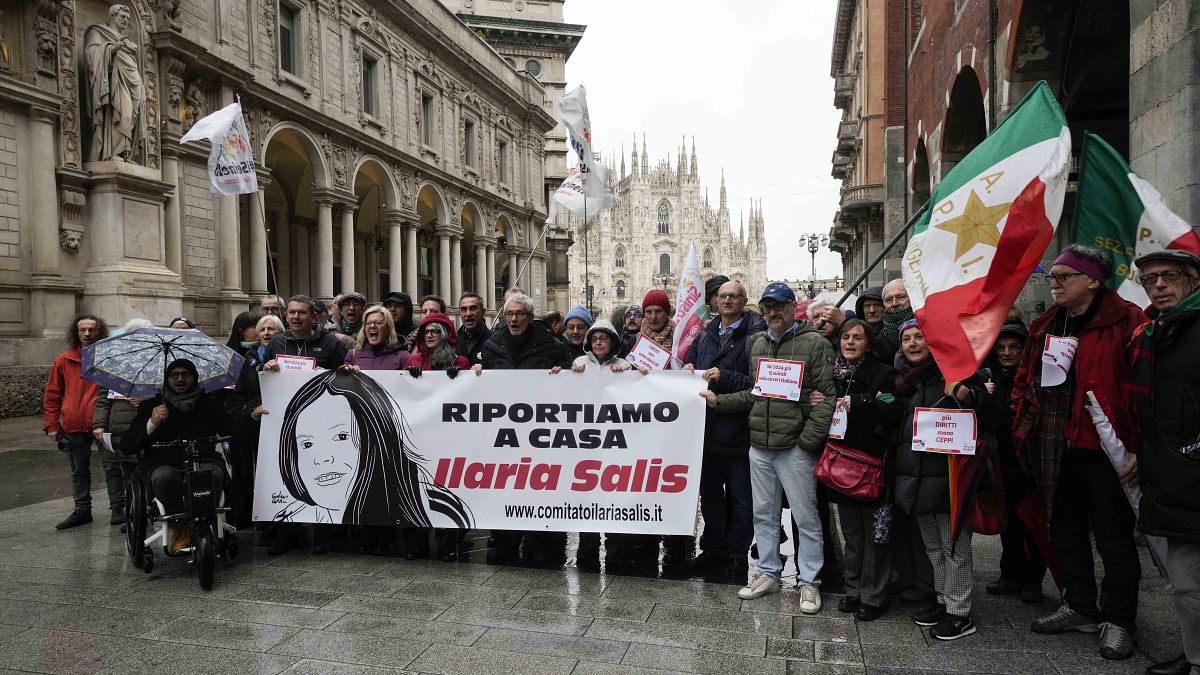World
EU must be ready to accept new members by 2030 – Charles Michel
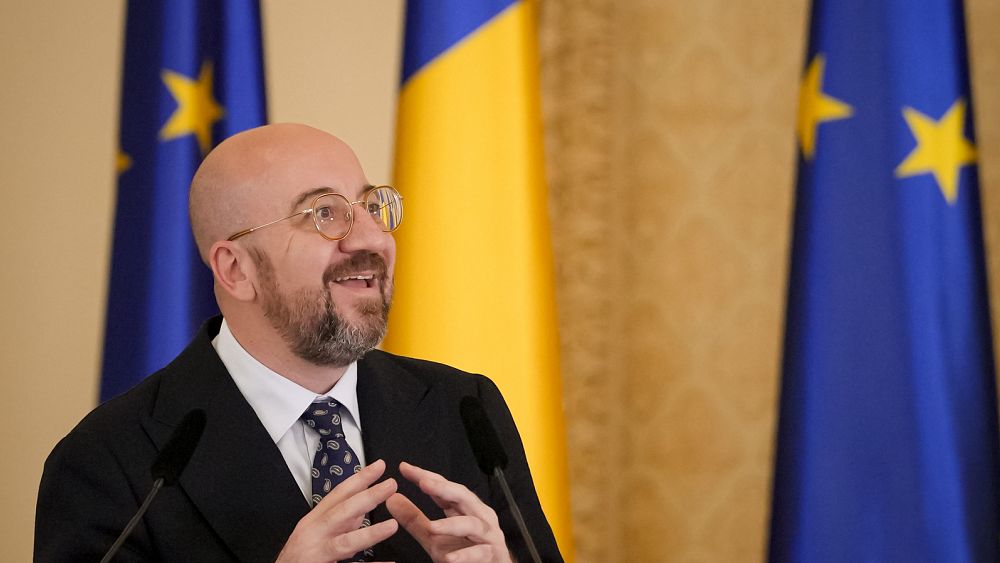
The European Union must be ready to enlarge by 2030 if it wants to remain “credible”, European Council President Charles Michel said Monday at the Bled Strategic Forum in Slovenia.
“As we prepare the EU’s next strategic agenda, we must set ourselves a clear goal. I believe we must be ready — on both sides — by 2030 to enlarge,” Michel said to an audience that included the leaders of Albania, Bosnia and Herzegovina, Moldova, Montenegro and North Macedonia, all official candidates for EU accession.
“This is ambitious, but necessary. It shows that we are serious,” Michel said.
The geopolitical impact of Russia’s war in Ukraine has forced the EU to revive its dormant enlargement policy, as countries in Eastern Europe and the Western Balkans look to Brussels for closer integration with the West.
Three countries – Ukraine, Moldova and Bosnia and Herzegovina – have gained candidate status since the start of the invasion in February 2022, while engagement with the other five candidate countries has intensified. Ukraine’s path to membership is seen as the most critical for ensuring a geopolitical European Union, but it is also the most politically fraught.
EU needs to “get ready”
The renewed desire for enlargement raises questions about the EU’s capacity to integrate new members, an issue likely to make the agenda when the 27 EU heads of state meet in Granada, Spain, in early October, a day after a gathering of the European Political Community that will be attended by the leaders of these candidate counties.
Enlargement could require significant EU budget reforms. Seven out of eight candidate countries have a GDP per capita below that of Bulgaria, the poorest EU country, meaning the distribution of funds could leave some current member states with a smaller slice of the EU pie following enlargement.
But Michel suggested that there is a “window of opportunity” opening for the EU to reach a deal on the enlargement process.
“The EU’s next long-term budget will need to include our common goals. This is ambitious but necessary,” Michel said, as “it will give a transformative boost to reforms and it will generate interests, investment and better understanding.”
Speaking at the conference, Slovenian Prime Minister Robert Golob said EU preparations for accession “must happen in the next 12 months or they will not happen for a very long time.”
Changes in the EU treaties could also be needed to ensure decision-making can happen swiftly and effectively in a larger bloc.
The current ‘qualified majority’ voting model, where decisions pass only with the backing of 15 member states representing at least 65% of the EU population, would need to be adapted.
“More members will mean more diversity. We will have to adapt our institutional framework and procedures, so an enlarged EU is able to take efficient and timely decisions,” Michel said.
A larger bloc also increases the probability of vetoes on decisions that require the unanimous backing of EU member states, such as those on issues considered more sensitive including foreign and security policy. But in a sign he believes an enlarged EU could reach consensus even on high-stake political decisions, Michel said that “scrapping unanimity could be throwing the baby out with the bath water.”
Removing obstacles to accession
Countries must meet demanding criteria before they can become EU members, including introducing economic and judicial reforms. Michel named rule of law, organised crime, judicial independence, economic reforms and bilateral and regional issues as some of the pending actions Western Balkan countries must address to succeed.
“Enlargement is and will remain a merit-based process. Membership of the Union brings both responsibilities and benefits. To take on the former and reap the latter in a highly competitive environment, you need to be ready,” Michel said.
Accession to the EU also requires the unanimous backing of the 27 member states, with Michel’s task of securing political consensus in the Council potentially delicate.
Addressing concerns that a state in the Western Balkans could become an EU member and then use their power to block the future accession of a neighbour, Michel proposed a so-called confidence clause in the accession treaties.
“There is no room for past conflicts within the EU,” he said.
‘Strengthening EU support’
Some countries have voiced frustrations over the slow pace of accession, which has on average taken nine years for the 21 member states who have undertaken the process.
Michel said the EU wants to support by offering progressive and gradual integration into EU policies on energy, the single market and security and defence, so that candidate countries feel the benefits even before formal accession.
This could see future member states contributing to the development of EU policy before becoming members.
Michel believes the European Commission’s enlargement package due October, which assesses candidate countries’ progress in the accession process, is an opportunity to outline the concrete details of progressive integration.
Michel met with leaders of the Western Balkans nations earlier on Monday.
The 18th edition of the Bled Strategic Forum, themed ‘Solidarity for Global Security’ and organised by the Slovenian Ministry of Foreign Affairs, takes place just weeks after devastating floods killed six people in Slovenia, in what was described by Prime Minister Robert Golob as the worst natural disaster to ever hit the country.

World
Russia-Ukraine war: List of key events, day 819

As the war enters its 819th day, these are the main developments.
Here is the situation on Friday, May 24, 2024.
Fighting
- At least seven people were killed and dozens more injured in a Russian missile attack on Kharkiv, Ukraine’s second-largest city and home to about one million people.
- Nearly 11,000 people have been forced to leave their homes in the Kharkiv region since Russian forces began a cross-border ground offensive there on May 10, Governor Oleh Syniehubov said.
- Vyacheslav Gladkov, the governor of Russia’s Belgorod region, said one woman was killed after a destroyed Ukrainian drone fell on her house. The Russian Ministry of Defence said 35 Ukrainian rockets and three drones had been shot down over the Belgorod region, which lies across the border from Kharkiv.
- Russia’s Defence Ministry claimed its forces had recaptured the small village of Andriivka in Ukraine’s eastern Donetsk region. The Ukrainian General Staff said later that its troops were repelling three Russian assaults in the area of Andriivka and nearby Novyi. Andriivka was liberated by Ukrainian soldiers in an offensive last September.
- Sergei Aksyonov, the head of the Russia-annexed Crimea peninsula, said two people were killed in a Ukrainian missile attack near Simferopol, the peninsula’s main administrative centre. Ukraine has not commented on the alleged attack. Russia invaded and annexed Crimea from Ukraine in 2014.
- Russia said it brought down a Ukrainian drone in its central Tatarstan region, hundreds of kilometres from the two countries’ border.
Politics and diplomacy
- Russia arrested Lieutenant-General Vadim Shamarin, deputy head of Russia’s General Staff, and a high-ranking defence official on corruption and “abuse of power” charges in a widening crackdown on corruption in military contracts. The two are being held in custody pending trial.
- Russian President Vladimir Putin arrived in Belarus, Moscow’s closest ally, for talks with President Alexander Lukashenko that are expected to focus on security and military exercises involving tactical nuclear weapons.
- Putin signed a decree allowing the confiscation of assets inside Russia belonging to the United States, its citizens and companies, to use as compensation over Western sanctions against Moscow.
- Russia jailed 36-year-old barman Vladimir Malina for 25 years for joining a unit of Russians fighting for Ukraine and carrying out sabotage of railway equipment.
- Russia jailed 20-year-old student Vladimir Belkovich, from Siberia’s Irkutsk region, to 13 years in prison for treason after he agreed to post leaflets on behalf of a pro-Ukraine partisan group.
- Thirteen Ukrainian children returned home from Russia and Russian-occupied territories of Ukraine with the cooperation of Qatar, officials in Kyiv said. Ukraine says about 20,000 Ukrainian children have been sent to Russia without the consent of their families or guardians.
- OVD-Info, a leading Russian rights group and protest monitoring network, said it had received a notice from YouTube threatening to block access in Russia to one of its video channels featuring news on the war in Ukraine.
Weapons
- Ukraine’s Foreign Minister Dmytro Kuleba again called on the country’s Western allies to send seven Patriot air defence systems. “They are needed now, not tomorrow,” he said.
- The US is preparing a new $275m military aid package for Ukraine, which will include high mobility artillery rocket systems (HIMARS), as well as 155mm and 105mm high-demand artillery rounds, Javelin and AT-4 antitank systems, antitank mines, tactical vehicles and small arms.
- Russian jamming has prevented many of Ukraine’s relatively new long-range glide bombs from hitting their intended targets, Reuters reported, citing three people familiar with the challenges.
World
'Ron, I love that you're back': Trump and DeSantis put an often personal primary fight behind them
DES MOINES, Iowa (AP) — Donald Trump, the presumptive Republican presidential nominee, and Florida Gov. Ron DeSantis are signaling to donors that they are putting their rivalry behind them after a contentious and often personal primary fight.
DeSantis convened his allies this week in Fort Lauderdale, Florida, to press them to raise money to support Trump, making the case over a seafood and steak dinner that they need to work together to prevent Democratic President Joe Biden from winning a second term. The governor and about 30 people then spent Thursday morning in a hotel conference room raising money for an outside group that supports the former president’s 2024 White House campaign.
Trump called into the gathering to thank members of the group for their work, according to four people familiar with the matter who were not authorized to publicly discuss the private session and spoke on condition of anonymity.
In what three people present described as a warm and gracious call to the group that was heard over speakerphone, Trump praised DeSantis and the effort, saying “Ron, I love that you’re back.”
A reconciliation helps both of them. Trump is trying to make up fundraising ground against Biden while DeSantis hopes to preserve a potential future White House run for which Trump’s supporters could be key.
What to know about the 2024 Election
DeSantis and his top donors are raising money for the super political action committee Right for America, backed by big Republican donors such as Ike Perlmutter, who has agreed to match at least a portion of the DeSantis team’s fundraising rather than funneling money directly to Trump’s campaign.
That arrangement, reached after talks between the Trump and DeSantis camps, is designed to address concerns among DeSantis supporters about their money going to pay the former president’s legal bills, according to people familiar with the matter who requested anonymity to discuss the private talks. Trump notably blessed the structure when he called into the group’s meeting Thursday.
“This is where I want you to focus,” Trump said in a roughly 15-minute call, according to a senior political adviser to DeSantis who was not authorized to publicly discuss the private meeting and spoke on condition of anonymity.
DeSantis’ decision to push money to the PAC instead of giving directly to Trump’s campaign has raised eyebrows among some Trump campaign officials, according to a person familiar with the former president’s campaign thinking who spoke on condition of anonymity to discuss the arrangement.
Right for America is competing for donors with MAGA Inc., the chief super PAC backing Trump. Such groups are prohibited from directly coordinating with a presidential campaign, something that hamstrung DeSantis during his presidential run due to conflicts between his campaign and his support of Never Back Down, the largest super PAC backing DeSantis’ candidacy.
Other supporters of both men support the arrangement. Right for America is run by Sergio Gor, a longtime Trump ally who is close to the former president’s eldest son, Donald Trump Jr. The two run Winning Team Publishing, which published two of the former president books.
Some DeSantis donors had been reluctant to give to Trump because they worried their money would help pay Trump’s lawyers in his criminal cases instead of being used directly to focus on beating Biden.
A number of big-name Florida contributors who have given to DeSantis remain hesitant about contributing to efforts to support Trump, said Al Hoffman, a Palm Beach County Republican donor and former Republican National Committee finance chair.
“I know that there are Republican conservative, big-money donors that are very reluctant to endorse Trump,” said Hoffman, who was also chairman of former Florida Gov. Jeb Bush’s 2002 reelection campaign.
DeSantis endorsed Trump when he dropped out of the race and promised in a face-to-face meeting with the former president in April to work for his campaign. The 45-year-old governor, who has won two terms and pushed a longtime swing state increasingly to the right, may run for the White House again and would need the backing of Trump voters in a future Republican primary.
DeSantis called his allies to Fort Lauderdale this week to raise money for Trump, telling them on Wednesday night that they needed to work to prevent a second Biden term.
The meeting was the kickoff for what is expected to be a coast-to-coast fundraising effort by DeSantis allies, with upcoming events likely in Texas, California, Washington state and perhaps New York.
Trump and DeSantis have also discussed a role for the governor at the Republican National Convention. Aides to DeSantis said it was Trump’s suggestion and was not contingent on any fundraising effort on DeSantis’ part.
Donors who discussed the Thursday event were struck by the collegiality between Trump and DeSantis during the call to the meeting. One person who spoke on condition of anonymity about the closed-door gathering called the conversation “very gracious” and noted that Trump and DeSantis talked about golf, a favorite Trump pastime.
___
Associated Press writer Jill Colvin in New York contributed to this report.
World
The Mystery of Indira Gandhi's assassination by her own bodyguards
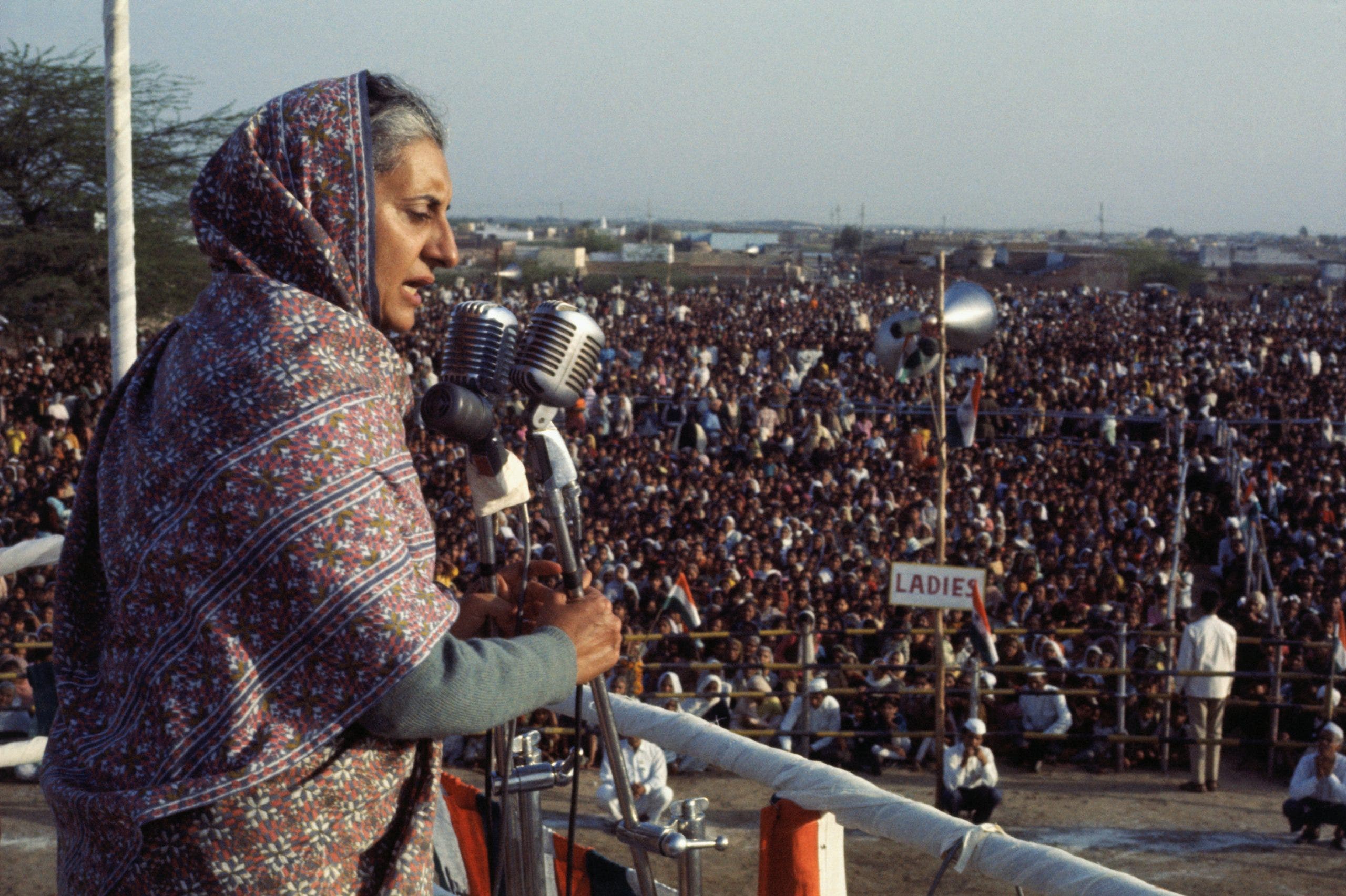
Indira Gandhi, a prominent Indian politician and the daughter of Jawaharlal Nehru, India’s inaugural prime minister, was tragically assassinated by her own bodyguards on Oct. 31, 1984.
Born Nov. 19, 1917, she emerged as a central figure in her country’s political landscape, eventually becoming prime minister in her father’s footsteps.
The trust she placed in her favorite Sikh security guard, following Operation Blue Star, ultimately proved to be a fatal mistake. In exploring the narrative of Gandhi’s assassination, it is crucial to examine the backgrounds and motivations of her assailants, shedding light on the reasons that led to their fatal decision.
Prior to her time in office, Indira Gandhi studied at prominent institutions, including Somerville College, Oxford and the Visva-Bharati University in West Bengal. (Shukdev Bhachech/Dipam Bhachech)
Who was Indira Gandhi?
Gandhi served as her country’s third and only female prime minister starting in 1966 to 1977, and then served another term from 1980 until she died in 1984.
As a central figure of the Indian National Congress, she was admired for her leadership and criticized for her authoritarian approach. She played a significant role in Indian politics and is often cited as a trailblazer for women throughout the country.
ON THIS DAY IN HISTORY, APRIL 26, 1865, JOHN WILKES BOOTH IS KILLED BY UNION TROOPS FOR MURDERING LINCOLN
Gandhi was a key player in Indian politics for 17 years, whether in office or out of it. She played an active role in the Independence movement and closely worked with her father, Jawaharlal Nehru, a pivotal figure in the establishment of contemporary India, serving as his assistant when he was prime minister. In 1959, she also held the position of president of the Indian National Congress.
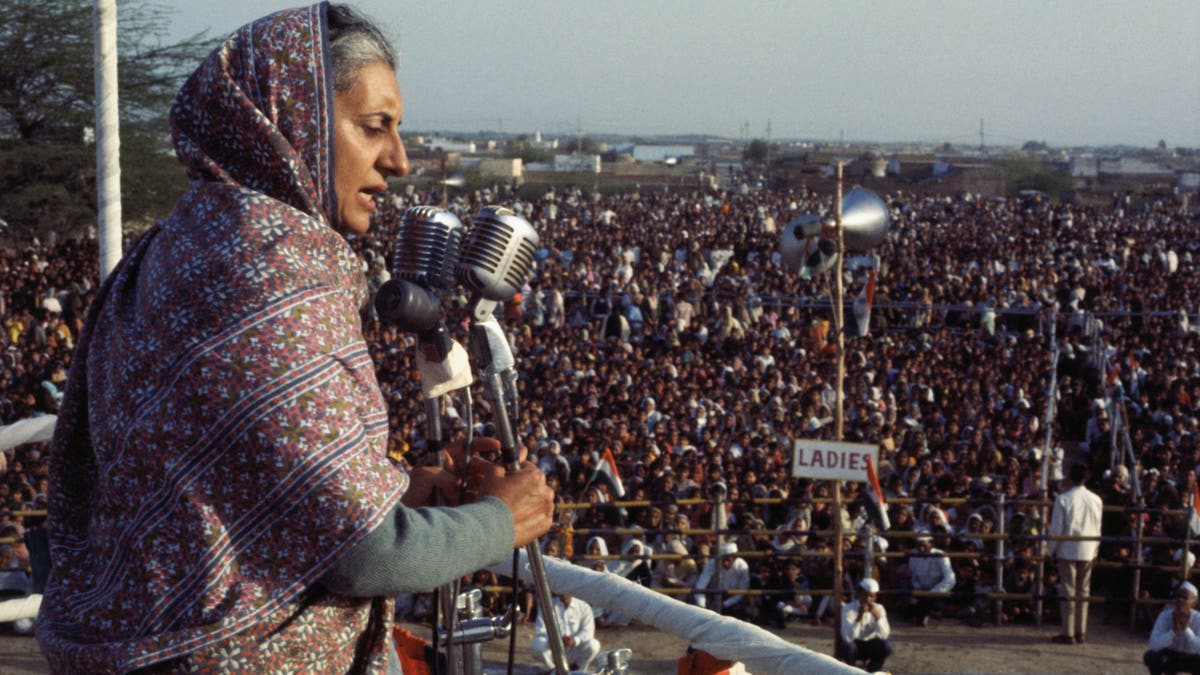
Indira Gandhi’s tenure has been characterized by significant economic and social changes, but also by allegations of authoritarianism.
Indira Gandhi becomes prime minister
Gandhi rose to power suddenly after Lal Bahadur Shastri died in 1966. At the outset of her leadership, India struggled with significant economic hardships, including high inflation and food shortages. The country’s agricultural sector was vulnerable due to its dependence on the monsoon seasons and aid from the U.S.
She also faced substantial political challenges and dedicated much of her tenure to overcoming these issues, the same issues Nehru attempted to resolve. She fought to direct India toward self-reliance and economic resilience. By 1980, India had become self-reliant and even became a nation of grain surplus, alongside notable industrial progress — achievements attributed to her governance.
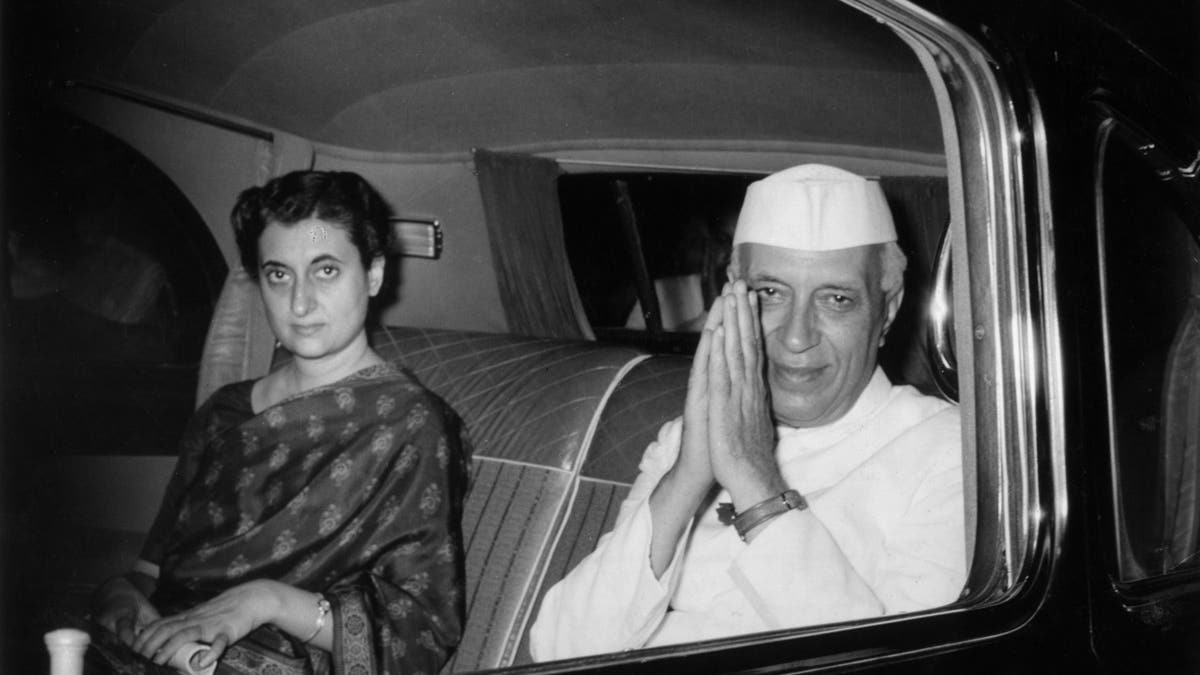
Indira Gandhi’s involvement in politics began at an early age, often accompanying her father on his political campaigns. (Hulton Archive)
Acknowledged milestones during her leadership include the triumph in the 1971 War with Pakistan, the formation of Bangladesh and the cementing of India’s status as a potential nuclear power. All of these developments strengthened India’s self-esteem.
INDIA SAYS CANADA HAS SHOWN NO EVIDENCE OF ITS ALLEGED INVOLVEMENT IN MURDER OF SIKH SEPARATIST LEADER
Her tenure ended with her assassination, leaving behind a legacy of achievements and unresolved tensions.
Indian society was divided about her; some called her “Mother Indira,” and others viewed her as authoritarian. However, it is widely accepted that her leadership shaped India and set the course for its future.
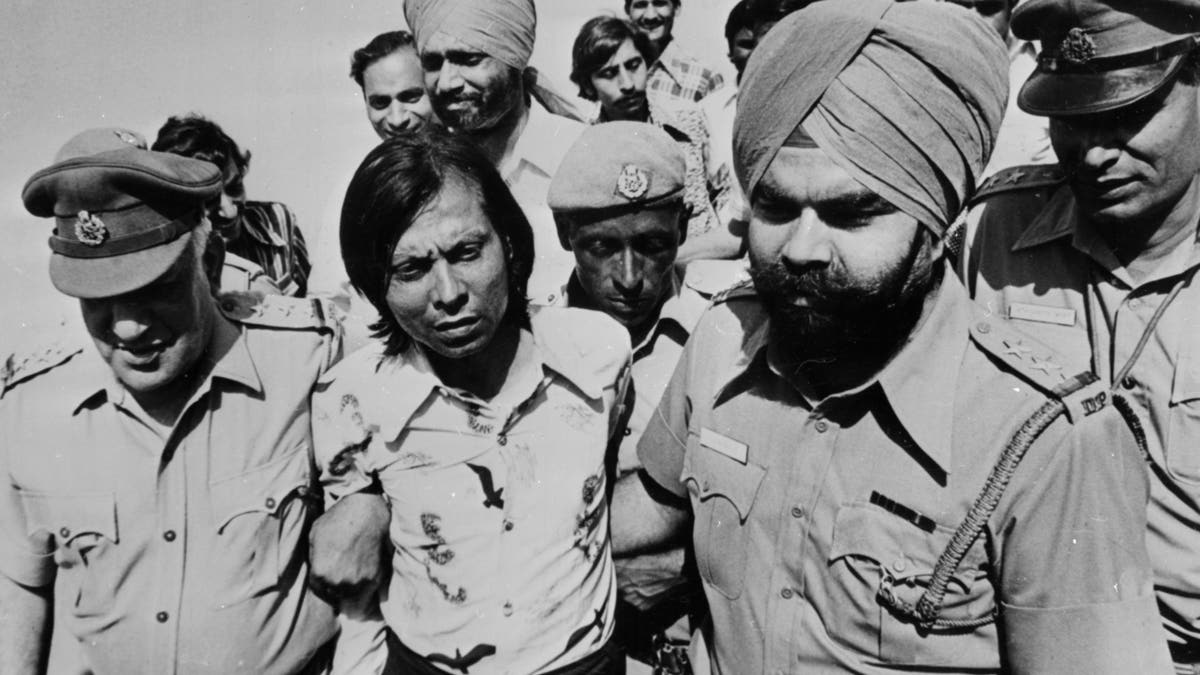
Indira Gandhi was assassinated by her own Sikh bodyguards on Oct. 31, 1984, following the events of Operation Blue Star. (Keystone/Getty )
Operation Blue Star
Gandhi’s time as prime minister was impaired by increasing tensions with Sikh separatists, culminating in Operation Blue Star. This was the Indian army’s response in June 1984 to remove militant Sikh leader Jarnail Singh Bhindranwale and his followers, who had hidden themselves within the Golden Temple in Amritsar. The militants’ substantial armaments led to a heavy-handed military response, which included the use of artillery.
The conflict ended on June 10 with the army seizing control of the temple. However, the operation, which coincided with a significant Sikh religious event, resulted in numerous civilian deaths who were present at the time. This resulted in widespread condemnation from Sikhs globally. They interpreted it as an attack on their religious community.
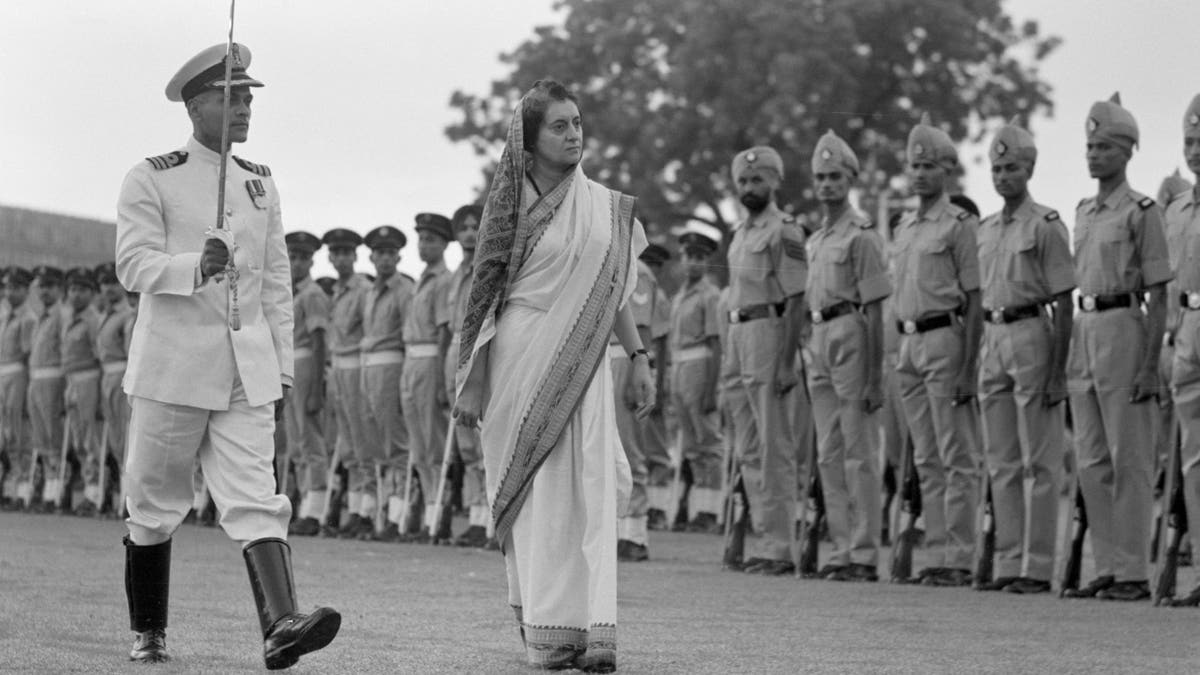
Indira Gandhi served as prime minister of India for three consecutive terms (1966-77) and a fourth term from 1980 until her assassination in 1984.
IRANIAN LAWMAKER DECLARES TEHRAN OBTAINED NUCLEAR BOMBS
The repercussions of Operation Blue Star severely damaged Gandhi’s standing with Sikhs, which eventually led to her assassination.
Assassination of Indira Gandhi
Gandhi’s assassination on Oct. 31, 1984, was committed by her bodyguards, notably Beant Singh, who was considered a favorite. The assassination was a consequence of the tensions from Operation Blue Star and led to a planned reassignment of Sikh bodyguards, including Singh. Gandhi canceled the transfer, worried about increasing her anti-Sikh persona.

Indira Gandi married Feroze Gandhi in 1942, and together had two sons, Rajiv Gandhi and Sanjay Gandhi. (Keystone/Getty)
On the morning of her assassination, despite being advised to wear a bulletproof vest, Gandhi was not wearing it.
As she walked through a gate headed to an interview, Singh shot her three times in the abdomen with his .38 revolver. Satwant Singh, another bodyguard, fired 30 rounds from his submachine gun. Following the assault, Beant was located and killed by Border Police, and Satwant was tried and executed in 1989.
Indira Gandhi’s son, Rajiv Gandhi, succeeded her as prime minister of India.
EDITOR’S NOTE: This report has been updated to clarify Indira Gandhi’s successor.
-

 World1 week ago
World1 week agoPro-Palestinian university students in the Netherlands uphold protest
-

 Politics1 week ago
Politics1 week agoDem newcomer aims for history with primary win over wealthy controversial congressman
-

 Politics1 week ago
Politics1 week agoSouthern border migrant encounters decrease slightly but gotaways still surge under Biden
-

 Politics1 week ago
Politics1 week agoWhite House walks diplomatic tightrope on Israel amid contradictory messaging: 'You can't have it both ways'
-

 World1 week ago
World1 week agoSlovakia PM Robert Fico in ‘very serious’ condition after being shot
-

 World1 week ago
World1 week agoCanadian Nobel-winning author Alice Munro dies aged 92
-

 News1 week ago
News1 week agoDespite state bans, abortions nationwide are up, driven by telehealth
-

 Politics1 week ago
Politics1 week agoVulnerable Dem incumbents move to the center in key swing states as Biden panders to far-left base







